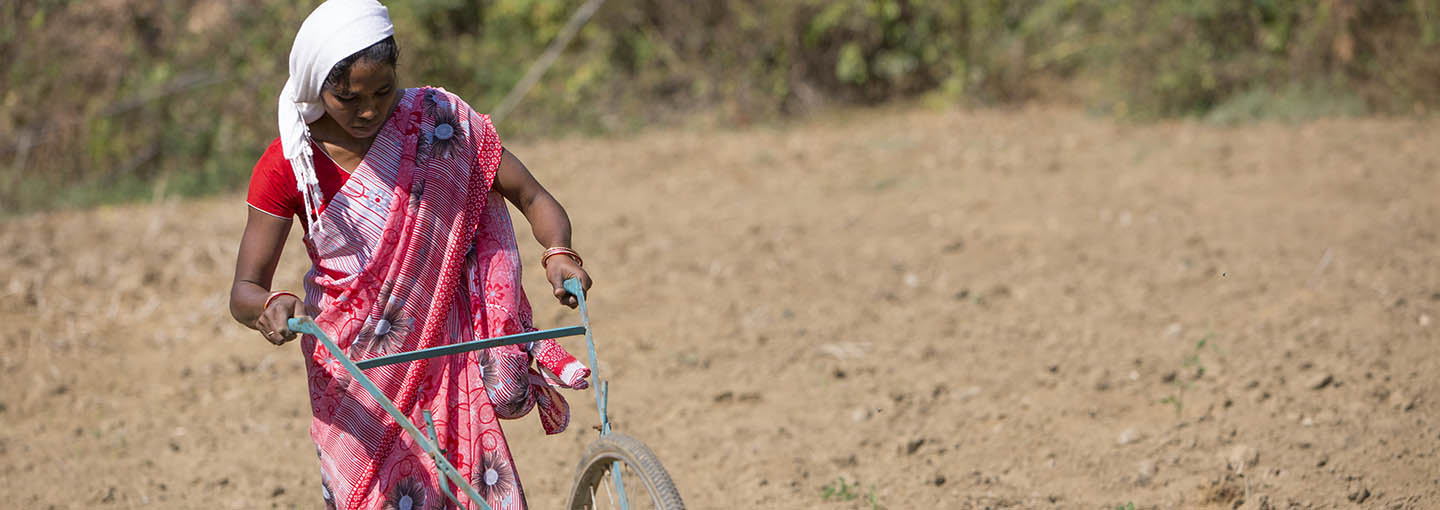In a world with a projected nine billion people to feed by 2050, where food production is constrained by worsening climate change, the idea of so-called Climate Smart Agriculture has been increasingly presented as the sustainable solution for expanding agricultural production.
The concept of Climate Smart Agriculture was first developed by the World Bank and the United Nations Food and Agriculture Organization (FAO). They claimed that it could bring “triple wins” in agriculture through
- reducing greenhouse gas emissions
- supporting crops to grow in changing climate conditions
- increasing crop yields
Indeed, Climate Smart Agriculture might sound like a sensible idea at first. In the face of climate change, developing countries face growing pressure to create an environment for scaling up Climate Smart Agriculture.
In reality, there is confusion and debate over what the term “Climate Smart Agriculture” really means, and whether it is actually benefiting farmers and food systems in the face of climate change.
The problem is that Climate Smart Agriculture remains a vague concept without clear definitions, standards or safeguards. There are no meaningful criteria for what can or cannot be called “Climate Smart”. Ultimately there are no protections in place to prevent “Climate Smart” activities from forcing farmers off their land, undermining their livelihoods or pulling them into debt, or to stop them from being sued for activities such as seed saving.
Corporations that are destructive to the climate, the environment and farmers are free to use the term. In fact, these same corporations are the most enthusiastic proponents of the concept, as they re-brand their activities as “Climate Smart” while continuing business-as-usual.
Big companies such as Syngenta, Yara (the world’s largest fertilizer manufacturer), McDonald’s and Monsanto have all been criticized for their promotion of synthetic agrochemicals and genetically modified seeds, both of which are resulting in the expansion of intensive factory farming of livestock and industrial scale mono-cropping. These trends are contributing to climate change and undermining diverse and resilient local farming systems. Nonetheless, these corporations claim that they are leaders in Climate Smart Agriculture and that their models of food production offer the solutions needed to address climate change.
These contradictions arise from the very concept of Climate Smart Agriculture. By reducing it to a mere set of technical fixes, proponents of Climate Smart Agriculture are failing to consider the political issues surrounding how a food system is structured, the power dynamics that exist within current food systems, and considerations of human rights, sustainability and equality.
The fact that companies such as Monsanto and Syngenta promote Climate Smart Agriculture is a sign that the concept is not going to challenge the way their power has shaped current global food systems – systems which are clearly failing to feed the world and care for the planet. Climate Smart Agriculture simply allows them to continue relying on a system that encourages the concentration of power, the use of harmful chemicals, and the violation of farmers’ rights to seeds and natural resources.
There is another way, and that’s agroecology. Agroecology is a practice that meets the needs of the world’s most vulnerable farmers in the face of climate change.
With a strong emphasis on the human component in farming, agroecology is considered a science, a practice and a social movement. It builds on seven pillars which tackle the economic and socio-political components of sustainable food systems, from the production, processing and marketing of food produce, to the strengthening of local farmers’ associations and women’s empowerment. Agroecology also recognizes that while the majority of the world’s most food insecure people live in rural areas, these are the very same people who produce most of the world’s food. Women represent 43% of the agriculture workforce, and much more, if all the unpaid work they do around the house, including caring for children and cooking, is counted. Yet women own less than 20% of the world’s land.
From working with women farmers around the world, we at ActionAid firmly believe that poverty and food insecurity are matters of inequality and injustice. For this reason, we see agricultural development as more than an increase in productivity and income for local farmers. Development is not possible without fair access to resources, food sovereignty, elimination of violence against women, and the recognition and redistribution of women’s unpaid care work.
That’s why we have been promoting agroecology for decades. By promoting the rights of people to access natural resources, agroecology supports them to produce their own food and make decisions about the food they want to eat.
We support agroecology over “Climate Smart Agriculture” because it
- builds on the knowledge and experience of local farmers to keep the soil fertile and to adapt to climate change
- cools the planet, and healthy soil captures carbon much more efficiently
- replaces chemical fertilizers and pesticides, and reduces our dependence on fossil fuels
- preserves women’s knowledge on traditional seeds, and gives them more control over their own income and resources
- promotes social values such as community solidarity, environmental preservation, and the cultural dimensions of food, which all contribute to building stable and healthy societies
The house of agroecology is therefore not a laboratory. It is the hands of the millions of local farmers, women and men, who for centuries have saved their seeds, managed their soils and adapted to changing environments.
Agroecology is the most viable solution for building farmers’ food security and their resilience to climate change. We train millions of farmers in developing countries to support their transition from conventional agriculture to agroecology. We support their organizations to influence national and global public policies to support agroecology.
ActionAid is active in global climate negotiations demanding greater support for climate adaptation. Smallholder farmers, particularly in the Global South, are highly affected by climate change, most of which has been caused by consumption and pollution in wealthy countries. Farmers in the South, who have done little to cause the problem of climate change, are the first to suffer its impacts, including droughts, floods and cyclones.
ActionAid is concerned that pressuring developing countries to adopt Climate Smart Agriculture, especially in Africa, will force them to take on an unfair burden to fight climate change, when they didn’t cause the problem in the first place. So a week from now, at FAO’s Second International Symposium on Agroecology, we will join other civil society organizations to call for a shift from industrial agriculture to agroecology.
Without moving from an industrial agriculture model to agroecological farming practices that support the world’s smallholder farmers, there can be no “triple win” solution. Climate Smart Agriculture will not save the planet, because it relies on and strengthens the major contributors to climate change.
Climate Smart Agriculture does not address the root causes of the problem, or strengthen the sustainability and resilience of farmers. Agroecology does.

